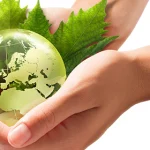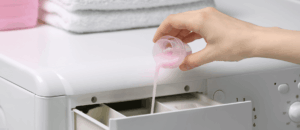A £200 per tonne plastic tax will come into effect from the 1st April 2022 in the UK, what does it mean for our industry and how can we minimise the impact of this tax?
The Plastic Problem
Plastic is amazing! It’s revolutionised our lives and brought convenience to many industries. If plastic disappeared overnight, our wider industry would completely collapse, it’s THAT important for what we do. However, plastic is a huge problem too.
Looking at one industry sector, personal care, it has been reported that over 120 billion units of plastic packaging are produced globally every year!
Luckily we’re all pro blue-bin recyclers, so where’s the problem? The problem is that around 90% of recyclable plastics which are in our recycling bins never make it into another product!
Image source: Science Advances research article: Production, use, and fate of all plastics ever made
So, if stopping the use of all plastics is not going to be possible, we must make sure that much more is reused. Not only are microplastics detrimental to our environment globally, but oil reserves are finite, so a solution must be brought to the table, and it must be brought as soon as possible.
The Plastic Packaging Tax
In a bid to minimise the plastic going to landfill, the UK Government’s Plastic Packaging Tax (PPT) will be introduced on the 1st April 2022.
A tax of £200/tonne of plastic will be applied to plastic packaging produced in, or imported to, the UK. Plastic packaging containing a minimum of 30% recycled plastic will be tax-exempt. In addition, smaller businesses importing/producing less than 10 tonnes of plastic packaging every year will be exempt from the tax. The tax is expected to raise £235 million in its first year.
Companies using more than 10 tonnes of plastic (virgin, part recycled, or fully recycled) per year will be required to register for the Plastic Packaging Tax by 30th April 2022. Plastic includes bioplastics, such as biodegradable, compostable and oxo-degradable plastics.
The tax will be paid by the first business in the chain which commercially exploys the plastic packaging, though naturally these costs are likely to trickle down the chain too.
Which Plastic Packaging Items Are Subject To Or Exempt From The Tax?
Most of the packaging used by our industry sectors will be subject to the tax. There are a few very specific items used in our industry which would be exempt, these are:
How Can You Reduce Plastic Use?
1. Use RECYCLLED plastic!
A simple enough solution, meet the required minimum recycled plastic % in your packaging products. So many consumer cosmetics bottles are already compliant, displaying their ‘30% minimum recycled plastic’ labels. But be warned, the 30% target is just the beginning, the % recycled plastic requirement is likely to be increased over time.
So if going down the part recycled route is right for your products, why not consider taking the next step and using a higher % recycled plastic or even aim for 100% recycled plastic? Bright Green Plastics are even able to customise a 100% recycled plastic material using clever additives to help improve your product.
2. Use LESS plastic!
Another way to reduce the amount of PPT you need to pay is to reduce your plastic packaging requirement. This could be possible by reformulating to make a more concentrated version of your product, reducing plastic thickness, or otherwise altering the packaging shape and functionality.
Return and refill schemes are also becoming popular, especially in HI&I. However we’re also seeing trial schemes in personal care too.
3. Use NO plastic!
“I was amazed recently when I bought a new vacuum from Shark and there was NO plastic packaging; all of the packaging – yes everything – was made from card or paper! Right down to the twizzley strings keeping pieces of the product in-place.” Jennifer from Cambridge.
Is it even possible to use no plastic for products in our industry, though? The short answer is ‘maybe!’, the longer answer requires a discussion with our technical team! They have successfully reformulated many products over the years with innovative solutions to minimise plastic use, or even cut it out all together.
There are also plastic alternatives which may be suitable – particularly natural biproduct-based plastic alternatives – which is an emerging area in the packaging world. Take a look at Colourform, who have been working with LUSH to provide plastic-free packaging solutions.
The suitability of a plastic-free product will depend on your product and its end user, so it’s a discussion worth having.
If you’d like to discuss the ways our team can assist with your formulations to help you reduce your reliance on virgin plastic, please complete the form below for a free consultation with our technical team.
[contact-form-7 id=”1382″ title=”Chemlink Enquiry Form”]










